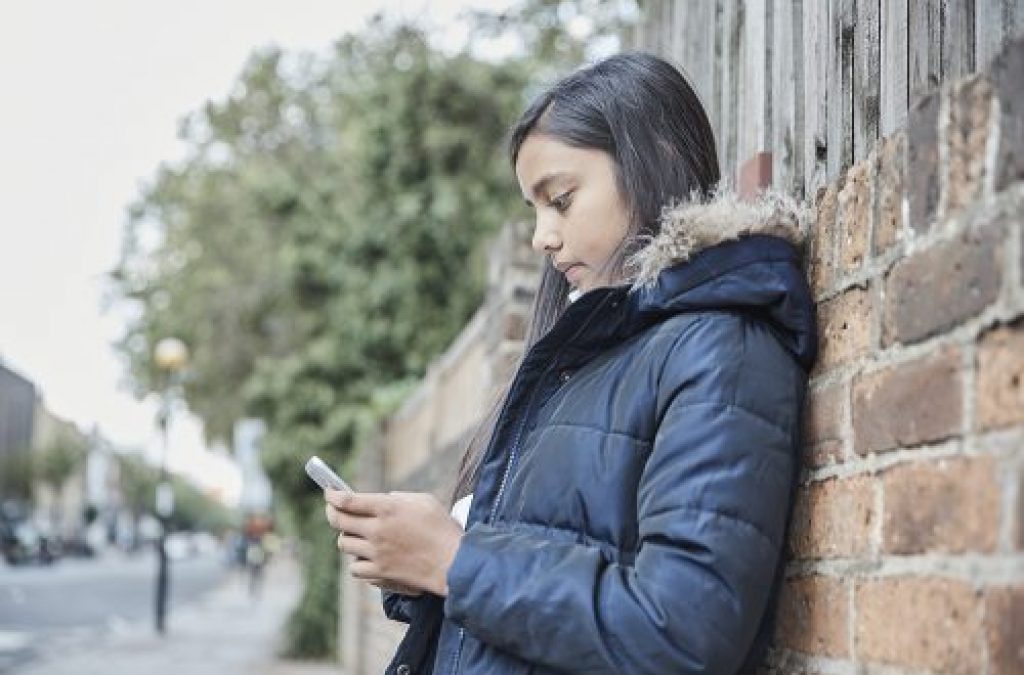No-one can deny the online world is an excellent resource for children and young people. It can be used for learning, playing games and connecting with friends.
But along with the undoubted benefits of the internet, come dangers that can pose a risk to a child at any time.
Children no longer just have access to the internet through a desktop computer at home, they have mobile phones, laptops and tablets.
It means when bullying and abuse happens online, it can feel like there’s no escape for the child. It can happen wherever they are, at any time of the day.
And as fast as parents can find solutions, the internet changes and presents more problems.
A recent survey by the NSPCC and O2 found that four in five children feel that social media companies aren’t doing enough to protect them from pornography, self-harm, bullying, and hatred on their sites.
The findings are revealed in the latest Net Aware guide, the UK’s only parents’ guide to 39 of the most popular social media sites, apps, and games used by young people.
The guide asks parents and children to review the most popular sites, apps and games that children are using on a number of factors, including seeing inappropriate content, ignoring age restrictions and communicating with strangers.
It also offers advice on how to set parental controls on different devices. They can be used to filter and block content, restrict information that can be shared, set limits on time spent online and at what time of day, and set different profiles for different family members.
Here are some tips from the NSPCC about how to discuss internet safety with children and young people:
- Sit down as a family and discuss boundaries, and what’s appropriate and what’s not
- Write a list together of the sites, apps and games your child likes. You can talk about what they might see on the sites using the list as a reference
- Talk about anything they, or their friends, have seen online that made them feel uncomfortable
- Make sure they know how to block someone, where reporting functions are and how to keep information private
- Talk to them about being ‘share aware’. Would they share their phone number in person? Explain that online behaviour should mirror behaviour in real life
- Try to explain that talking to strangers isn’t always bad, but they should be careful about what they share and know that sometimes people aren’t who they say they are
- Does your child know what ‘personal information’ is? Talk to them about sharing their email address, full name, phone number, address and school name – and why it’s important
There’s a lot to discuss so it’s easier to have conversations little and often, rather than trying to cover it all at once.
As children get older, how they use the internet will also change. It’s important for parents to keep talking to them. Having the right information will keep parents and other adults feeling confident and in control.
NSPCC tips for children who are being bullied include:
- Tell someone you trust – it could help you report the cyber-bullying and give you more confidence to deal with the situation
- Don’t reply to any nasty messages you receive. Keep the messages that you’ve been sent so that you can show someone
- Don’t share, comment, or like any bullying posts. Sharing or commenting could make it worse.
- Remember you can call Childline any time for free on 0800 1111
And if the child is being a bully:
- The first step is realising that you’ve been involved in bullying. We all make mistakes and it doesn’t make you a bad person
- Tell someone you trust who may be able to offer you some advice about what to do
- Go back and delete any upsetting or nasty posts, tweets or comments
- Talk to others involved and encourage them to stop the bullying. It only takes one person to make a big change
- Say sorry to the person who was bullied. This can mean a lot
- The important thing is to learn from it and change the way you act in the future
There’s more information available online at www.net-aware.org.uk or www.internetmatters.org.uk, or by calling the NSPCC’s online safety helpline on 0808 800 5002.

